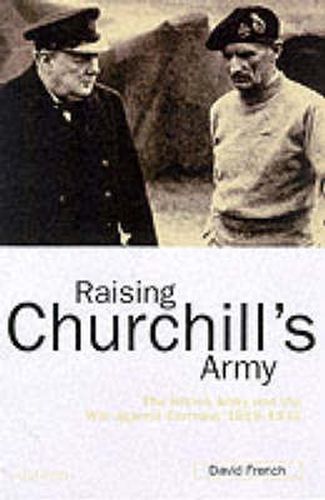Readings Newsletter
Become a Readings Member to make your shopping experience even easier.
Sign in or sign up for free!
You’re not far away from qualifying for FREE standard shipping within Australia
You’ve qualified for FREE standard shipping within Australia
The cart is loading…






This is the first serious analysis of the combat capability of the British army in the Second World War. It sweeps away the myth that the army suffered from poor morale, and that it only won its battles through the use of ‘brute force’ and by reverting to the techniques of the First World War. David French analyses the place of the army in British interwar strategy and during the Second World War. He shows that after 1918 the General Staff tried hard to learn the lessons of the First World War, enthusiastically embracing technology as the best way of minimizing future casualties. In the first half of the Second World War the army did suffer from manifold weaknesses, not just in the form of shortages of equipment, but also in the way in which it applied its doctrine. Few soldiers were actively eager to close with the enemy, but the morale of the army never collapsed and its combat capability steadily improved from 1942 onwards. Professor French assesses Montgomery’s contributions to the war effort and concludes the most important were his willingness to impose a uniform understanding of doctrine on his subordinates, and to use mechanized firepower in ways quite different from Haig in the First World War.
$9.00 standard shipping within Australia
FREE standard shipping within Australia for orders over $100.00
Express & International shipping calculated at checkout
This is the first serious analysis of the combat capability of the British army in the Second World War. It sweeps away the myth that the army suffered from poor morale, and that it only won its battles through the use of ‘brute force’ and by reverting to the techniques of the First World War. David French analyses the place of the army in British interwar strategy and during the Second World War. He shows that after 1918 the General Staff tried hard to learn the lessons of the First World War, enthusiastically embracing technology as the best way of minimizing future casualties. In the first half of the Second World War the army did suffer from manifold weaknesses, not just in the form of shortages of equipment, but also in the way in which it applied its doctrine. Few soldiers were actively eager to close with the enemy, but the morale of the army never collapsed and its combat capability steadily improved from 1942 onwards. Professor French assesses Montgomery’s contributions to the war effort and concludes the most important were his willingness to impose a uniform understanding of doctrine on his subordinates, and to use mechanized firepower in ways quite different from Haig in the First World War.